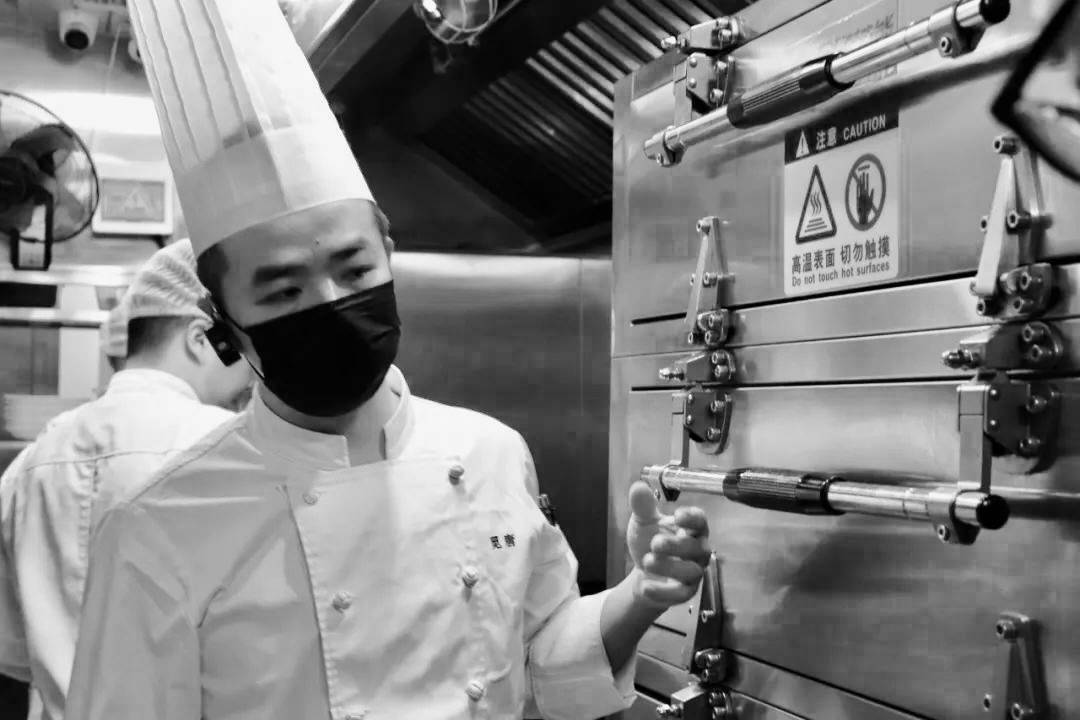
Food loss and waste have become significant global concerns, as they account for over one-third of the total food production, which is estimated to be as high as 1.6 billion tons every year. The greenhouse gas emissions resulting from food waste alone account for about 10% of the total emissions, affecting climate change and biodiversity. Hence, reducing food loss and waste worldwide is crucial to building a sustainable and safe food system. In 2021, China legislated the "Anti-Food Waste Law," and different regions have also issued policy documents, which have sparked a green movement to curb waste in the catering industry.
On November 13th, the "Pride on Our Plates" EU-China Food Waste Reduction Exchange Forum took place at the East Hotel in Beijing, organized by the Shenzhen One Planet Foundation (OPF), World Wide Fund for Nature (WWF) Beijing Office, Rare Europe, and the Rare China Center for Behavior, along with support from the China Hotel Association and the Institute of Geographic Sciences and Natural Resources of the Chinese Academy of Sciences. The event brought together experts from various fields, including the EU delegation to China, Chinese government agencies, catering enterprises, industry associations, and social organizations, as well as representatives from the EU embassies, and international institutions to discuss policies, standards, and innovative practices for reducing food waste in the catering industry. The forum provided a platform for experience sharing and practical environmental cooperation between China and the European Union.
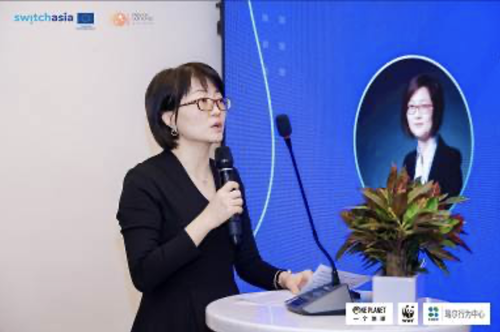 LIU Dongxin, Senior Operation Director of the WWF Beijing Office, emphasized the importance of a sustainable food system that affects people's livelihoods, the environment, and the global economy. WWF collaborates with the hotel and catering industry, tourism, and delivery platforms to reduce food waste, raise awareness, and provide policy recommendations. The EU SWITCH-Asia “Pride on Our Plates” project has achieved significant results in the past three years.
LIU Dongxin, Senior Operation Director of the WWF Beijing Office, emphasized the importance of a sustainable food system that affects people's livelihoods, the environment, and the global economy. WWF collaborates with the hotel and catering industry, tourism, and delivery platforms to reduce food waste, raise awareness, and provide policy recommendations. The EU SWITCH-Asia “Pride on Our Plates” project has achieved significant results in the past three years.
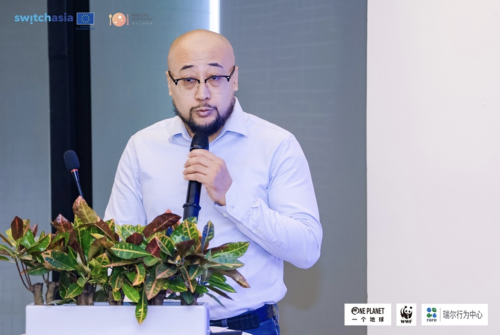 SHI Hua, Regional Program Head of OPF, stated that micro, small, and medium enterprises (MSMEs) account for 97% of the total number in China. Empowering these enterprises to join the challenge of reducing food waste is of great significance. Aiming to support MSMEs in practicing waste reduction, "Pride on Our Plates” has received support from various government departments, industry associations, and numerous enterprises, as well as widespread recognition from society. China's best practices can serve as a valuable contribution to worldwide attempts to decrease food waste. He urged more stakeholders to join the movement and help achieve the goal of halving food waste by 2030.
SHI Hua, Regional Program Head of OPF, stated that micro, small, and medium enterprises (MSMEs) account for 97% of the total number in China. Empowering these enterprises to join the challenge of reducing food waste is of great significance. Aiming to support MSMEs in practicing waste reduction, "Pride on Our Plates” has received support from various government departments, industry associations, and numerous enterprises, as well as widespread recognition from society. China's best practices can serve as a valuable contribution to worldwide attempts to decrease food waste. He urged more stakeholders to join the movement and help achieve the goal of halving food waste by 2030.
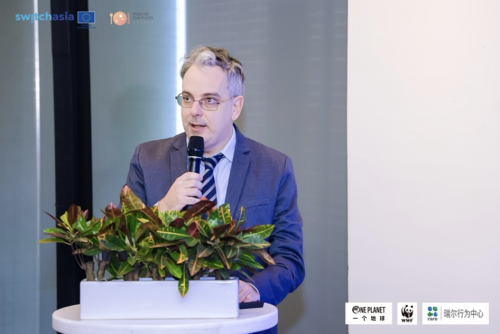 Mr. Pierre Yves Lucas, Team Leader of the Cooperation Section of the EU Delegation to China, shared the EU's latest policy and legislative development under the European Green Deal in light of the climate commitments towards 2030 and 2050. He emphasized the significance of reducing food waste, which includes initiatives like "Pride on Our Plates," to demonstrate the alignment with the external dimension of the European green agenda. Mr. Lucas expressed his optimism about the robust momentum of knowledge and experience sharing between public and private stakeholders in Europe and China in order to contribute to food waste reduction efforts in China.
Mr. Pierre Yves Lucas, Team Leader of the Cooperation Section of the EU Delegation to China, shared the EU's latest policy and legislative development under the European Green Deal in light of the climate commitments towards 2030 and 2050. He emphasized the significance of reducing food waste, which includes initiatives like "Pride on Our Plates," to demonstrate the alignment with the external dimension of the European green agenda. Mr. Lucas expressed his optimism about the robust momentum of knowledge and experience sharing between public and private stakeholders in Europe and China in order to contribute to food waste reduction efforts in China.
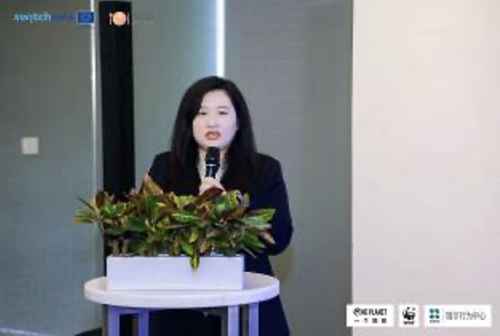 YU Xin, "Pride on Our Plates" project coordinator and the Priority Project Coordinator of Sustainable Food Consumption and Supply Chain at WWF China, shared the project's highlights. First, the project released the “Food Waste Reduction Casebook” and developed the “Food Waste Reduction Practical Guide”. The Practical Guide has sorted out 4 modules, 8 aspects, and 38 actions to address key points of reducing food waste. Secondly, 428 catering practitioners from 368 enterprises participated in the project training, and awareness of reducing food waste significantly increased. Meanwhile, the project has recruited 40 pilot restaurants to conduct a 10-week food waste track and scientific analysis and launched China's first cross-industry initiative to reduce food waste. The project also participated in the Evaluation Specification for Green Catering and carried out policy advocacy to support industry transformation. Last but not least, the project has actively participated in public engagement and advocacy through “The 1st ‘Pride on Our Plates’ Zero-Waste Cooking Contest” and the first "Zero Waste Cookbook" in China, along with other activities, reaching over 61 million consumers.
YU Xin, "Pride on Our Plates" project coordinator and the Priority Project Coordinator of Sustainable Food Consumption and Supply Chain at WWF China, shared the project's highlights. First, the project released the “Food Waste Reduction Casebook” and developed the “Food Waste Reduction Practical Guide”. The Practical Guide has sorted out 4 modules, 8 aspects, and 38 actions to address key points of reducing food waste. Secondly, 428 catering practitioners from 368 enterprises participated in the project training, and awareness of reducing food waste significantly increased. Meanwhile, the project has recruited 40 pilot restaurants to conduct a 10-week food waste track and scientific analysis and launched China's first cross-industry initiative to reduce food waste. The project also participated in the Evaluation Specification for Green Catering and carried out policy advocacy to support industry transformation. Last but not least, the project has actively participated in public engagement and advocacy through “The 1st ‘Pride on Our Plates’ Zero-Waste Cooking Contest” and the first "Zero Waste Cookbook" in China, along with other activities, reaching over 61 million consumers.
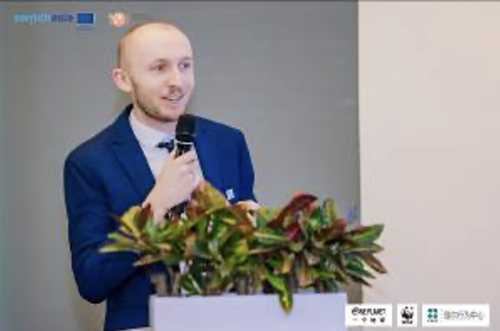 Sam Gray, Manager of Rare Europe, shared details about the activities carried out by the "Pride on Our Plates" project aimed at transforming the behaviors of catering professionals. He presented the project's "eight-step" design content and implementation process, which focuses on behavior. The process includes establishing a framework, conducting surveys, piloting, and evaluating. Additionally, the project employs various tools designed from different dimensions such as selection architecture, social impact, rules and regulations, and emotional stimulation that are easy to integrate into restaurant operations.
Sam Gray, Manager of Rare Europe, shared details about the activities carried out by the "Pride on Our Plates" project aimed at transforming the behaviors of catering professionals. He presented the project's "eight-step" design content and implementation process, which focuses on behavior. The process includes establishing a framework, conducting surveys, piloting, and evaluating. Additionally, the project employs various tools designed from different dimensions such as selection architecture, social impact, rules and regulations, and emotional stimulation that are easy to integrate into restaurant operations.
Representatives from the FAO, China Hotel Association, and the Chinese Academy of Sciences discussed global and local policies to reduce food loss and waste. The catering industry representatives from the “Pride on Our Plates” project’s pilot cities presented their local action plans and shared the successful experiences of the participating enterprises. Additionally, the EU policy officer, diplomat, and NGO leader introduced the EU’s “Farm to Fork” policy. They shared their experiences with legal protection, labeling, food donations, public education, tool development, and stakeholder cooperation in the EU.
The seminar also included two roundtable discussion sessions with stakeholders from various industries to promote communication and collaboration. The aim was to share the pilot experience of the "Pride on Our Plates" project and explore innovative practices to reduce food waste. Experts from industry associations, top food delivery platforms, and research institutions participated in these discussions. Representatives from multiple pilot catering enterprises also shared practical cases of using behavioral tools to minimize food waste.
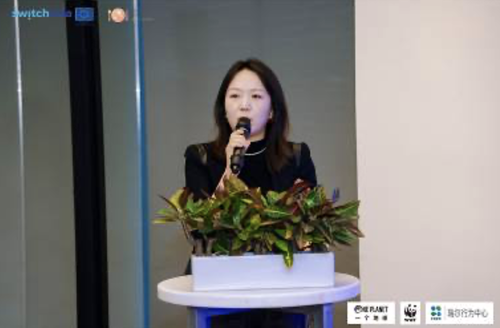 After a thorough day of exchange and discussion, the exchange forum ended successfully, with attendees expressing their eagerness for future cooperation. FENG Mei, Program Officer of the Cooperation Section, EU Delegation to China, concluded that the "Pride on Our Plates" project is a comprehensive platform that involves multiple perspectives and stakeholders. She expressed her expectation that the progress and achievements of the project's fourth year can further contribute to sustainable policies and practices in reducing food waste in China.
After a thorough day of exchange and discussion, the exchange forum ended successfully, with attendees expressing their eagerness for future cooperation. FENG Mei, Program Officer of the Cooperation Section, EU Delegation to China, concluded that the "Pride on Our Plates" project is a comprehensive platform that involves multiple perspectives and stakeholders. She expressed her expectation that the progress and achievements of the project's fourth year can further contribute to sustainable policies and practices in reducing food waste in China.
Representatives from China and Europe visited two pilot enterprises of the "Pride on Our Plates" project in Beijing for observation and exchange on November 14th. Representatives from various organisations, including the China Hotel Association, Sino-German Agricultural Center, Ningbo University, Hangzhou Foodtalk, and several restaurants and hotels, came together to discuss the progress of the pilot work.
The first stop for the guests was Kuntai Jiahua Hotel. The hotel restaurant reduced food waste by serving smaller portions in separate dishes, using smaller bowls, labeling non-halal food, and displaying customer reminder signs. The pilot program resulted in a 30% decrease in daily customer leftovers. Measures were also implemented in the kitchen, including reusing watermelon and fruit peels, and improving the accuracy of customer estimates. During the pilot period, kitchen preparation losses decreased by 24%. The hotel staff shared their experience of keeping daily records of kitchen waste and carrying out activities aimed at reducing waste by employees.
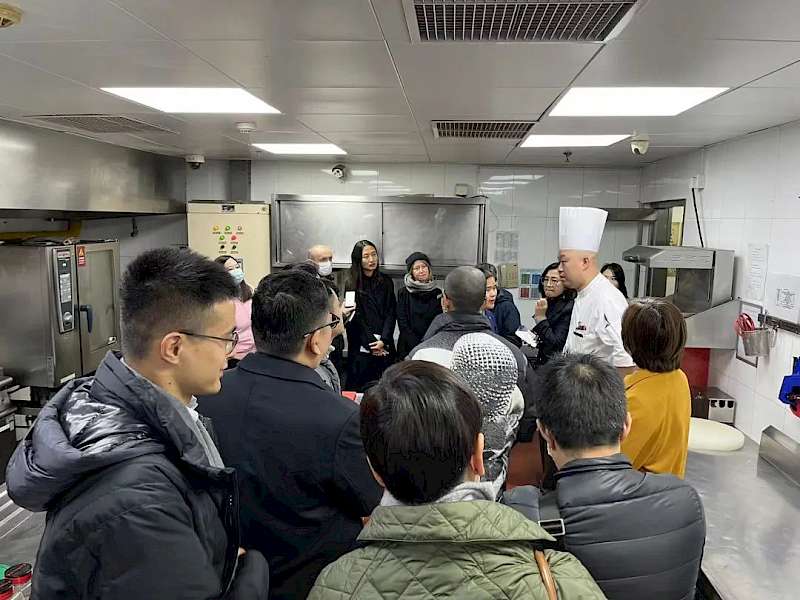
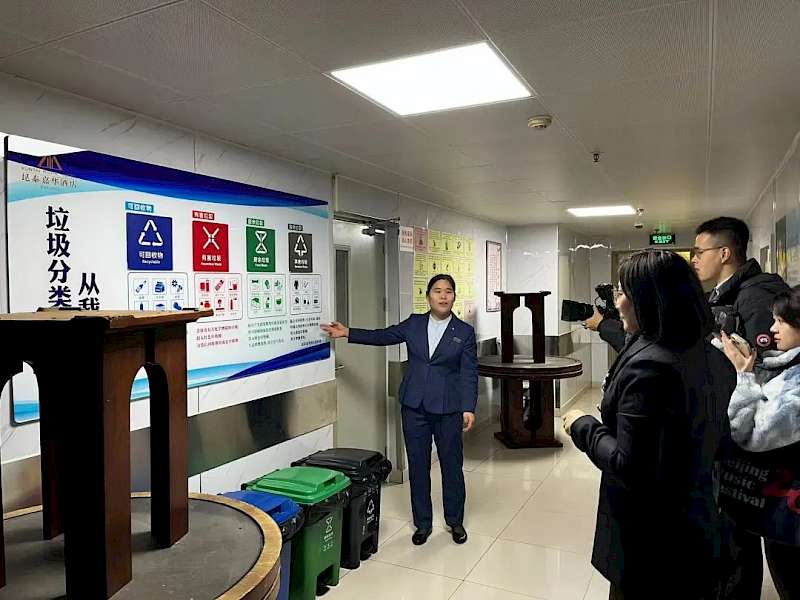
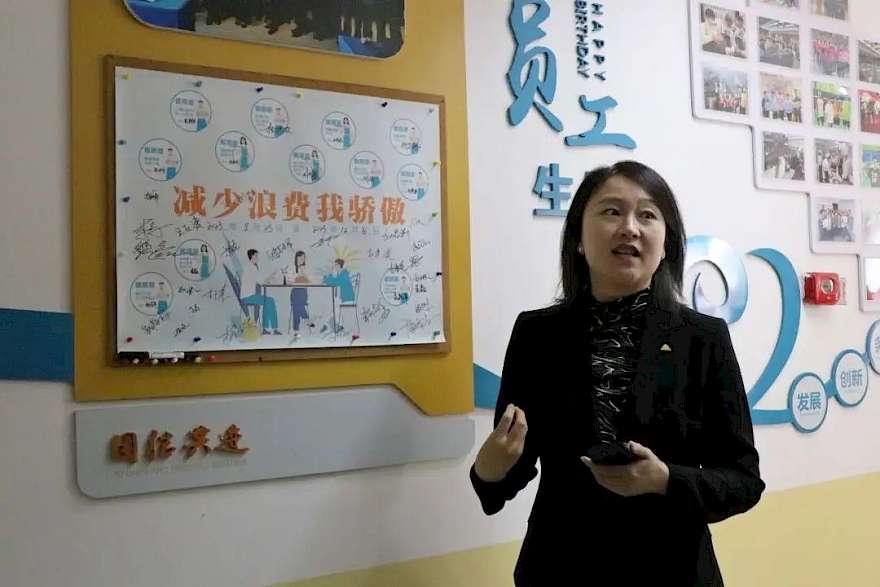

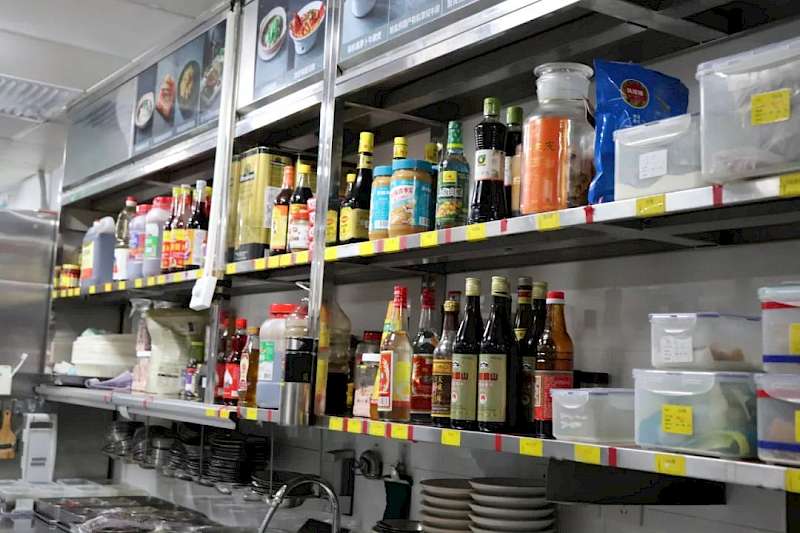
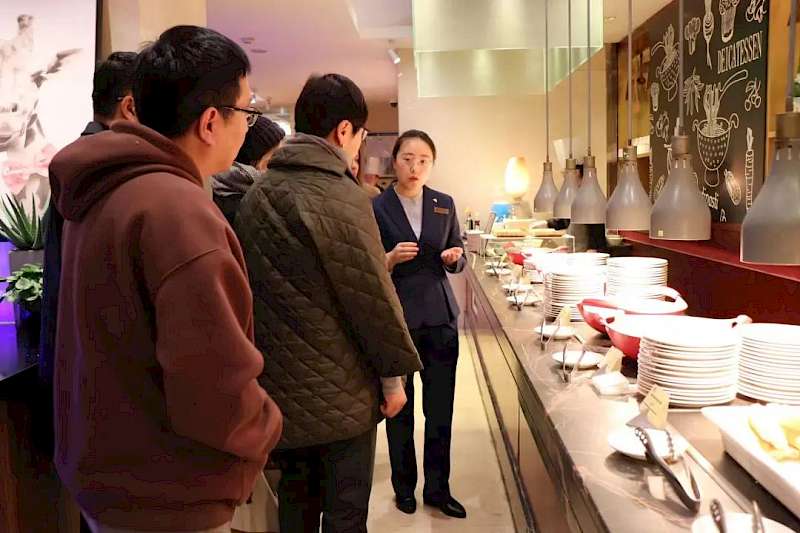
Next, the guests visited Mitang Cantonese Cuisine and were impressed by their efficient use of space, energy-saving equipment, and local procurement of ingredients. The restaurant purchases 60% of their ingredients from surrounding ecological farms, so as to support local farmers and also reduce waste. They also use fruit peels and vegetable scraps to make plant enzymes for cleaning and souvenirs. "We are honored to participate in the 'Pride on Our Plates' project. This aligns well with Mitang's business philosophy. By working with the project team, we have learned effective methods of reducing food waste. These methods motivate employees and greatly improve their enthusiasm for participation," shared Wang Yinfang, founder of the restaurant.
The pilot restaurant visit has been enlightening and inspiring for all the attendees, and the project looks forward to more achievements in the 4th year in all 6 pilot cities.


